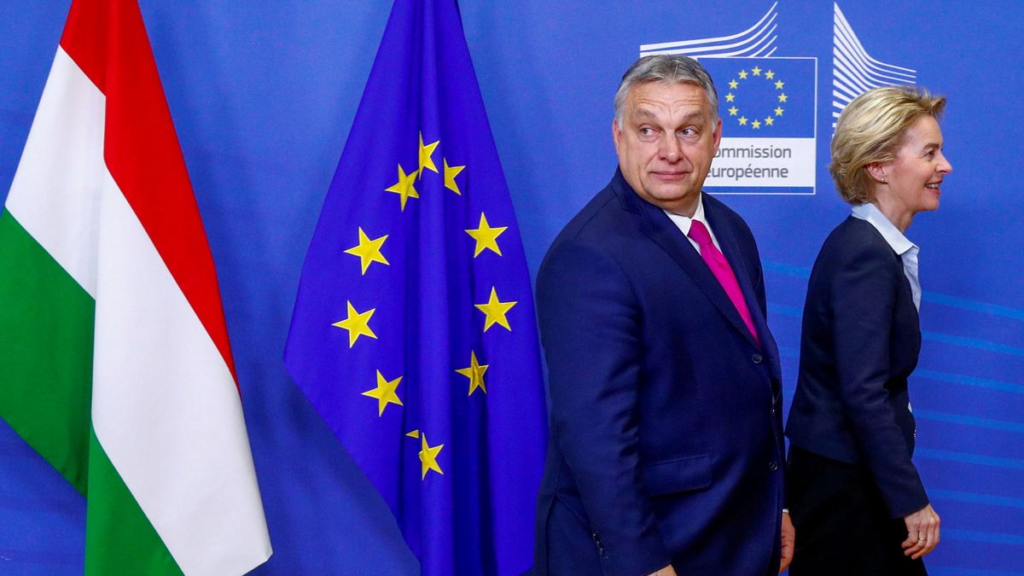Polls in Hungary predicted another result, but it is the Christian Democrat and nationalist Fidesz party that not only won, but expanded its majority in parliament. Katalín Novák (also past president of the excellent association Political Network for Values) was elected to the presidency and Victor Orbán reconfirmed as prime minister. They won a two-thirds majority in parliament.
In his victory speech, Victor Orbán highlighted the conservative victory, and sent a message to the European Union to which the country belongs: Christian-democratic and conservative policies are not Europe’s past, they are its future. He also criticized George Soros and his projects for the world.
The response of EU bureaucrats was not long in coming: Two days after the election, the European Commission began to act against Hungary.
The European Parliament used Articles 2 and 7 of the EU Treaty to accuse Hungary of “breaking the European values” indicated in Article 2. They include many arguments, but reading between the lines it is clear that it is because Hungary does not respect the “new human rights” (meaning: free access to abortion, LGTBI rights…). Normally the European Commission has to decide unanimously that a country is in violation before it can punish it. Until now Poland and Hungary protected each other from such effects, which prevented punishment. But this has changed. They passed legislation allowing them to suspend budget payments to a country that, according to them, contravenes the basic principles of the Union. Poland and Hungary protested against this legislation, but the European Court of Justice ruled in favor of the European Commission. Consequence: Two days after the elections (they were waiting to see who would win), on April 5, the European Commission launched this mechanism against Hungary. Now they will only need 55% of the votes of the European Council to condemn Hungary and suspend payments from the European budget. It would mean a loss of 40 billion euros for Hungary. This is a colossal amount, especially considering the country’s economic situation.
It then brings us to 4 possible scenarios that have been mentioned in the media in view of this tumultuous relationship between Hungary and the EU:
- Divorce: Hungary is expelled from the EU or they leave. This scenario is unrealistic because there is no mechanism to expel them, and they do not want to leave like the English at the moment. It is mentioned in some media, but I don’t find it very credible.
- Separation: Hungary’s vote in EU decisions is taken away. They could no longer vote on important decisions. Also, this scenario does not seem realistic to me because to achieve this, unanimity of the member states (minus the accused state) is still needed. And Poland continues to support Hungary.
- Economic Blackmail: The payment of the 40 billion budget is suspended. This seems to me to be the most realistic. Brussels wants to put maximum pressure on Hungarians to force acceptance of their “European values”, which seem to be synonymous with ideological Marxism and the promotion of gender ideology.
- They hold out: the EU holds out and ends up giving in while waiting for the next elections where they will hope for the victory of a coalition more favorable to their ideas. It does not seem very likely because the EU would appear weak, but it could give way on some points due to the current situation with Russia.
